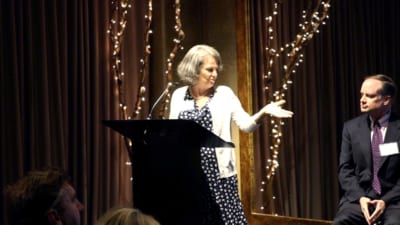If there’s one idea in the education space I’ve heard more than any other this past year, it’s this: students won’t improve their academic performance if their basic needs are not met. That’s not a new idea — Maslow purposed his original hierarchy of needs in 1943 — but it remains incredibly relevant today.
Single Stop is a nonprofit organization that aims to reduce poverty by connecting folks to the existing resources available to them. The organization’s National Education Director, Sarah Crawford, joined us at Bridge to deliver a presentation on the importance of meeting students’ basic needs.
“Our work in education is based on the fact that education is the number one predictor of social and economic mobility,” Crawford said during the presentation.
The organization embeds on several community college campuses in North Carolina, connecting students to everything from scholarships to tax credits and food stamps. According to Crawford, 36% of community college students have experienced some type of food insecurity, and the majority — 51% — have experienced housing insecurity.
During the presentation, Crawford cited a Government Accountability Office (GAO) study from January on college students and food insecurity.
“What they found is that 57% of food insecure students qualify and are eligible for food stamps, but they’re not getting it because they can’t get connected to those resources,” she said.


